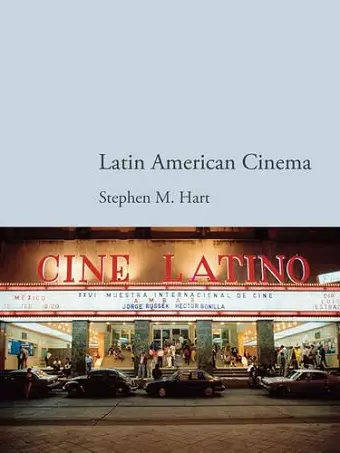Latin American Cinema
Format:Paperback
Publisher:Reaktion Books
Published:1st Oct '14
Currently unavailable, our supplier has not provided us a restock date

This book provides a succinct and comprehensive history of Latin American cinema from its origins in 1896 to the award-winning cinema of the present day. It analyses landmark films – including El Mégano (1955), Black God, White Devil (1964), The Official Version (1984), Central Station (1998), Amores Perros (2000), City of God (2002), Babel (2006) and Gravity (2013) – while tracing the broad contours of and connections between major historical developments. Stephen M. Hart guides us through the story of how Hollywood dominance succumbed to the emergence of the nuevo cine Latinoamericano and how this in turn led to the twenty-first century’s ‘New’ New Latin American Cinema. He provides a fresh analysis of Latin American cinema as seen through the prism of the major changes in film technology, looking closely at the films themselves and examining how their messages – through techniques and tricks of the trade – are expressed. We see how paradigm shifts such as the move to digital media at the close of the twentieth century led to new cinematographic techniques and visions, as well as how the decision by a group of Latin American directors to film in English led to the creation of a new globalized filmic idiom, enhancing the global visibility of Latin American cinema. Providing original views on major films and featuring mini-biographies of the central film directors, this is a clear and concise guide to the history of Latin American cinema.
"Hart has been running a documentary film-making summer school with me at the International Film and TV School (Escuela International de Cine y Television) in San Antonio de los Banos, Cuba, for the past seven years, and this experience of how to film and narrate Latin American reality is at the heart of his new monograph on Latin American film. Based on many years of research, "Latin American Cinema" is essential reading and offers critical insight into the complexities and contradictions which underpin our cinematographic culture." --Enrique Colina, director of Entre Ciclones (Cannes Film Festival, 2002)
ISBN: 9781780233659
Dimensions: unknown
Weight: unknown
240 pages